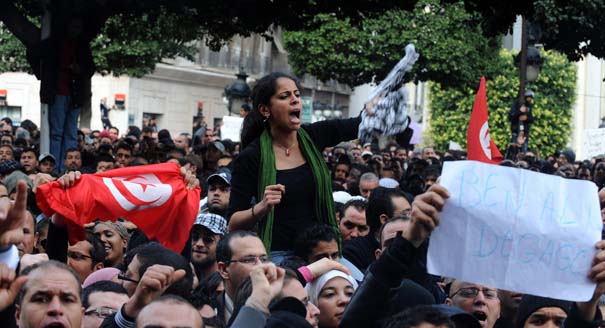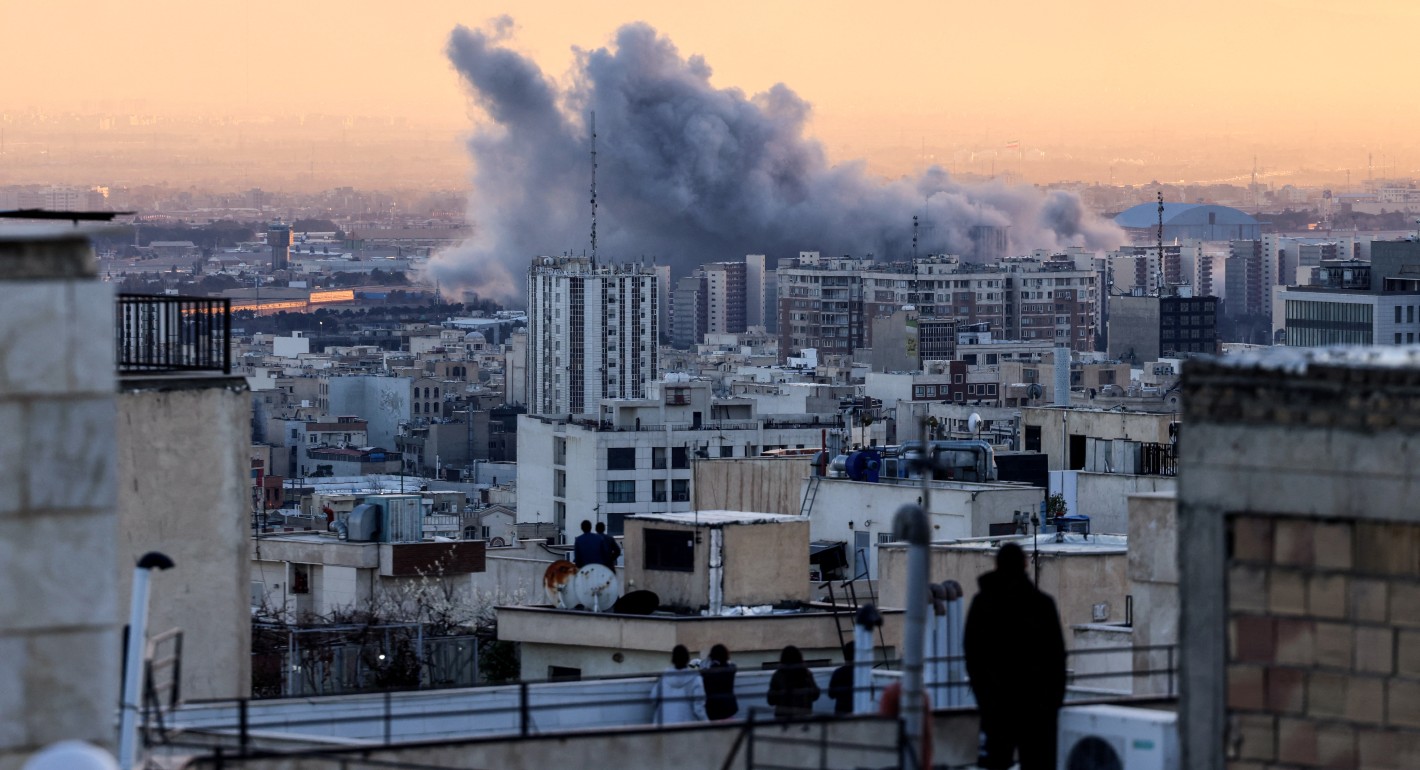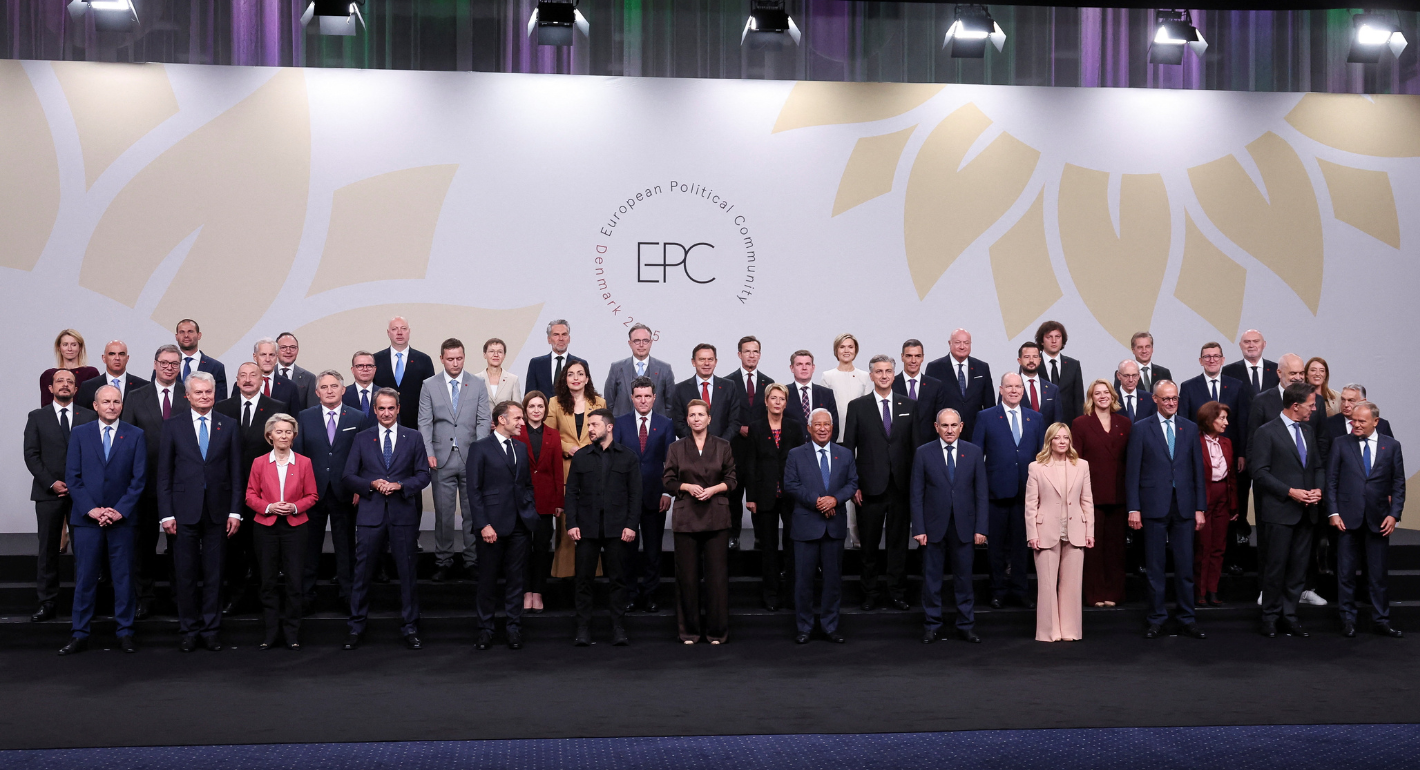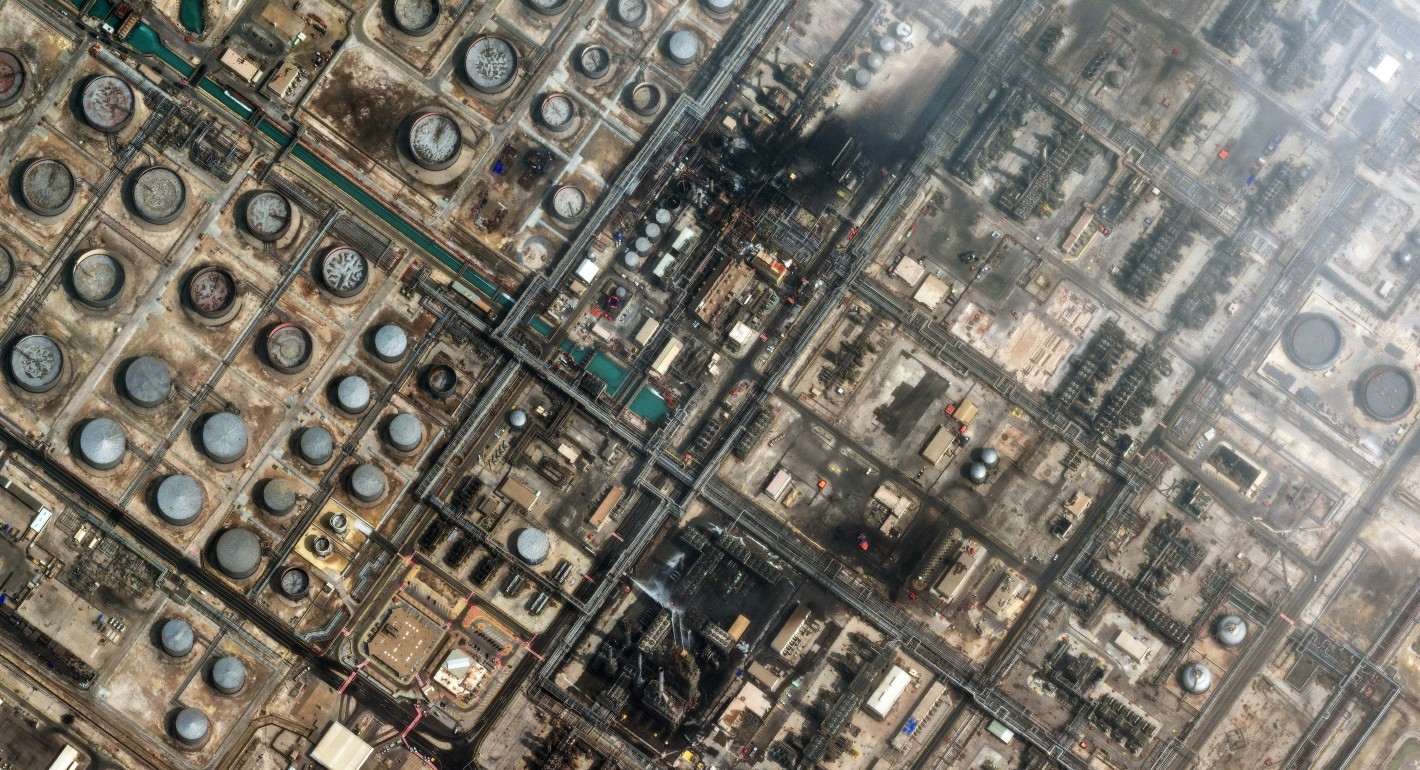Lilia Shevtsova
{
"authors": [
"Lilia Shevtsova"
],
"type": "legacyinthemedia",
"centerAffiliationAll": "",
"centers": [
"Carnegie Endowment for International Peace",
"Carnegie Russia Eurasia Center"
],
"collections": [],
"englishNewsletterAll": "",
"nonEnglishNewsletterAll": "",
"primaryCenter": "Carnegie Russia Eurasia Center",
"programAffiliation": "",
"programs": [],
"projects": [
"Eurasia in Transition"
],
"regions": [
"North America",
"United States",
"North Africa",
"Caucasus",
"Russia",
"Western Europe"
],
"topics": [
"Political Reform",
"Democracy",
"Domestic Politics",
"Foreign Policy"
]
}
Source: Getty
Seeing the Light
The Arab revolts are pushing Western governments to reject a pragmatic approach to foreign relations in favor of support for democratic values and human rights, with potentially significant effects on Russia’s relations with the West.
Source: Novaya Gazeta

Having lost its enemy, the West fell into a state of lethargy. There are signs, however, that Western civilisation, like in the 1930s and again in the 1970s, is looking for a second wind. If it succeeds, the civilisation gap between us will become unbridgeable.
How we’ve been had
Only recently, it seemed that the West and Russia had achieved a convenient form of coexistence and cooperation that both sides described as “pragamatism”, vehemently brushing aside any reminders of values. Here is a story of how my colleagues and I found ourselves crushed beneath the juggernaut of “pragmatism”. In June 2009, Lev Gudkov, Igor Klyamkin and Georgy Satarov published an article in The Washington Post called “Relations with Russia “false choice””. It was a reaction to the campaign by American “realists” who recommended rapprochement with Russia to the Obama Administration. The recommendations boiled down to the following: one should be friends with the Russian government and not vex the Kremlin with talk about civil rights and democracy.
In our article, we did not call for a return to the Cold War. We did not demand that Washington interfere in Russia’s internal affairs. We tried to argue that relations based on pragmatism would legitimise personality-based power in Russia. “We don’t need your help in fighting for democracy, we told the Americans. Try not to shore up Russian autocracy.”
That got them going. We were attacked from all sides, in both Washington and in Moscow. We were reviled on the pages of Nezavisimaya Gazeta and Russian TV channels. Sometimes they went came to absurd lengths. The most vehement critic was Pushkov, who is making a career out of being a mouthpiece for anti-Americanism. All of a sudden, he became a champion of American-Russian rapprochement. The campaign demonstrated the powerful support enjoyed by the pragmatic “reset” in circles close to the governments of America and Russia.
We and our appeals were nothing but naïve prophets on the sidelines. Life followed a different path. Obama and the Russian “tandem” have “reset” relations and are very pleased with each other, having proceeded to make reciprocal concessions. The European Union also launched a “reset”, proposing that Russia sign a Partnership for Modernisation without giving any thought to what exactly the Kremlin means by modernisation. A Great Deal has been struck between the West and the Russian regime.
The western capitals have no illusions about what is happening in Russia. Western leaders concluded that Russia posed no threat. Consequently, a compromise should be sought with the Kremlin to facilitate pursuit of the West’s own interests. If that compromise happens to help the corrupt Russian regime survive, well, you must take the rough with the smooth.
How the Arabs stirred things up
The deal between the West and the Kremlin became part of the Realpolitik that has prevailed in the West and downplays the issue of values, thus making cooperation with authoritarian regimes possible. After the turbulent 1970s and 1980s, when Latin America and Eastern Europe overthrew autocratic regimes, the world calmed down and became “non-ideological” and then a crash occurred where nobody had expected it. The Arab world erupted. The Arabs took to the streets, demanding freedom and not life according to the Koran. It was a shock. Gideon Rakhman of the Financial Times described the “Arab spring”: “The good news is that we see an Arab 1989 (an allusion to the revolutions in Eastern Europe in 1989 – L.Sh.). The bad news is that today we are the Soviet Union.” This means that the West has found itself in the role of the USSR, which, in 1989, looked with horror at the collapse of the world socialist system.
Yes, Western leaders were very disturbed to see the overthrow of pro-Western Arab rulers. Some of them had become members of the Western club. Not for nothing did Hillary Clinton say about Mubarack: “But he is a friend of the family”.
The Americans and the Europeans pretend not to notice the alarming situation in Saudi Arabia.
After all, the Saudi dynasty has been the West’s most loyal ally since 1945. The Americans backed their man in Bahrain until the last. And Washington was so much against the fall of Saleh in Yemen. However, when Paris and London intervened in Libya, they seemed to be in a hurry to cover up their unsavoury dealings with the Arab regimes. By the way, the Arab protests did not begin in Tunisia. They began in non-Arab Iran a year and a half ago, when hundreds of thousands of Iranians took to the streets of Teheran protesting against a ribbed election. At the time, the West chose not to notice the explosion, as Western leaders hoped to make a deal with the Iranian mullahs. So, no need to idealise the West: the Arab awakening could not have come at a more awkward time for the Western elites. Yet the West supported the Arab revolutions, albeit hesitantly. Obama’s evolution has been striking.
Previously, he behaved like a convinced “realist”. The crazy Libyan Colonel forced Obama to adopt a different language. This cool-headed man declared that “some nations can ignore violence in other countries. The United States of America will not tolerate violence.” I think it is clear who Obama had in mind when he spoke about countries that are indifferent to violence. Western leaders have to go beyond geopolitics and sacrifice faithful allies. Of course, Obama, Sarkozy and Cameron, in considering what to do about the Arab world, are thinking of how to strengthen their own positions at home. And while Cameron carries on the British tradition of the moral imperative, one can hardly suspect Sarkozy of allegiance to values. The important thing is that all of them have emphasised protection of human life and freedom. They could not have done otherwise. Any delay in reacting to the bloodshed in Libya would have undermined their electoral resources. And, if any of them suddenly quoted Gaddafi, like Putin did, he would be a political corpse.
An end to illusions
Meanwhile, the Arab tsunami started collapsing the axioms that underlie the generally accepted perception of the world. Huntington’s concept of the “clash of civilisations”, which has became something of a cliché, turned out to be hollow. The Arabs have confirmed what the countries of South-East Asia have already proved: cultural differences do not engender irreconcilable conflicts between civilisations and, indeed, do not prevent a non-Western civilisation from adopting liberal rules of the game. The Arab world has proved that Huntington was wrong in claiming that the confrontation between the West and the Islamic world would intensify and that freedom in the Islamic world was sure to “play into the hands of Islamic fundamentalists”. So far, Arab society has been clamouring for democracy and not for a hangover of power for Al Qaeda.
The Arab revolutions have confirmed that autocracy can collapse even in traditionally-orientated societies. The question suggests itself: “Can such a system be more stable in Russia, where traditionalism had been destroyed in the Soviet times?” The Arabs have taught the West yet another lesson: cooperation with totalitarian regimes has a price: loss of reputation within their own countries. Tony Blair, Berlusconi and Sarkozy are already paying for their cosy relations with the Arab dictators. As EU President Van Rompuy noted, “the Arab revolutions reminded us of the principles we had forgotten.” This is not to say that the Arabs suddenly awakened the West. Developments in the Arab world gave an impetus to a discussion that was already underway in Western society. Fed up with the cynicism of their leaders and disenchanted with ossified institutions, Western society is beginning to reappraise the principles of freedom, equality, justice and competition. Until recently, the West tried to overcome its ideological crisis by bringing back nationalist phobias and Realpolitik, yet there is now a move towards renewing standards. The era of Kissinger, the father of the new realism, is fading out during Kissinger’s own lifetime.
Far be it from me to entertain any illusions. The West has not embraced romanticism or any missionary zeal. Western elites started looking for a new formula for combining the interests and values without which strategic thinking is impossible. Not for nothing did the great Raymond Aron remind us that there can be no great society without a great idea. The current generation of Western dwarf leaders is incapable of bringing about such change – so new leaders will come to the fore to shape a new strategy.
Where does Russia fit in?
“The wave of riots in the Middle East again boosted oil prices. Great, my country is in luck again”, a leading Russian expert explained. How wrong he is. Oil enables Russia to cling to its past. Meanwhile, the world is beginning to move into the future. An atmosphere is emerging in Western society that may prove very uncomfortable for the Russian elite. Western leaders, having survived scandals over their friendship with Mubarak and Gaddafi, will now think twice before schmoozing with the Russian tandem. Western universities, which have seen the London School of Economics damage its reputation by accepting financial support from the Gaddafi clan, will be in no hurry to take money from Russian oligarchs. Great Britain has passed a “bribery act”, a law on combating bribes and venality, which will regulate the activities of foreign companies that have any interests in Britain. It is in Britain that most Russian businesses have settled. Other countries are contemplating passing similar acts. America is perfecting a mechanism for selective freezing of accounts and denying visas to representatives of odious regimes. There is a high probability of similar sanctions being imposed on the “Magnitsky list”. Western courts increasingly frequently bring to account Western companies involved in corruption in other countries (Siemens and Daimler are just two examples).
The European Parliament has been more actively churning out resolutions that condemn the practices of the Russian regime. So far, these resolutions are watered down through the efforts of a pro-Russian lobby in the European parliament, many of whose representatives are anything but altruistic. But with Western public opinion becoming less tolerant of many manifestations of lack of freedom, resolutions on Russia will become increasingly fierce. Not for nothing did the liberals in the European Parliament warn Mr Putin during his last visit to Brussels that Russia might become a target for sanctions on account of lack of human rights. An immediate breakthrough is unlikely. The force of inertia and the pressures of the here and now are too strong in the West. But what matters is that advanced social strata there are considering ways to stop Russia exporting corruption. They are thinking about halting the demoralisation of their own elite. Their concern about their own principles might help us. It is also important that the West is casting a nervous eye on the meanderings of nuclear power, which has lost its trajectory. We must thank the Arabs for reminding the great civilisation of the values it had forgotten.
PS. It is a good thing we wrote that article about Realpolitik when it was in fashion. Today we are not ashamed to remember it.
About the Author

Former Senior Associate, Russian Domestic Politics and Political Institutions Program, Moscow Center
Shevtsova chaired the Russian Domestic Politics and Political Institutions Program at the Carnegie Moscow Center, dividing her time between Carnegie’s offices in Washington, DC, and Moscow. She had been with Carnegie since 1995.
- Putin Has Fought His Way Into a CornerIn The Media
- How Long Russians Will Believe in Fairy Tale?Commentary
Lilia Shevtsova
Recent Work
Carnegie does not take institutional positions on public policy issues; the views represented herein are those of the author(s) and do not necessarily reflect the views of Carnegie, its staff, or its trustees.
More Work from Carnegie Endowment for International Peace
- Bombing Campaigns Do Not Bring About Democracy. Nor Does Regime Change Without a Plan.Commentary
Just look at Iraq in 1991.
Marwan Muasher
- Global Instability Makes Europe More Attractive, Not LessCommentary
Europe isn’t as weak in the new geopolitics of power as many would believe. But to leverage its assets and claim a sphere of influence, Brussels must stop undercutting itself.
Dimitar Bechev
- How Trump’s Wars Are Boosting Russian Oil ExportsCommentary
The interventions in Iran and Venezuela are in keeping with Trump’s strategy of containing China, but also strengthen Russia’s position.
Mikhail Korostikov
- Iran Is Pushing Its Neighbors Toward the United StatesCommentary
Tehran’s attacks are reshaping the security situation in the Middle East—and forcing the region’s clock to tick backward once again.
Amr Hamzawy
- The Gulf Monarchies Are Caught Between Iran’s Desperation and the U.S.’s RecklessnessCommentary
Only collective security can protect fragile economic models.
Andrew Leber









